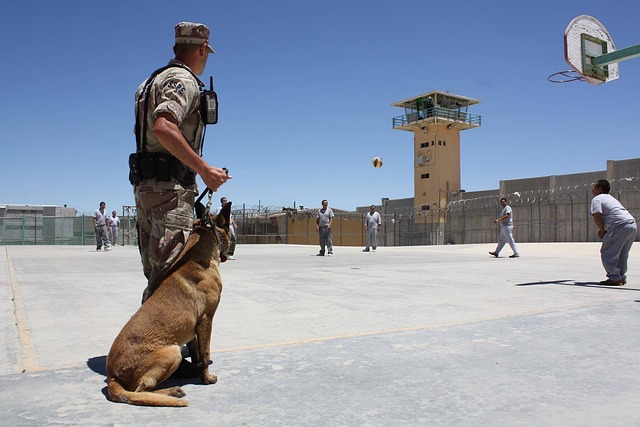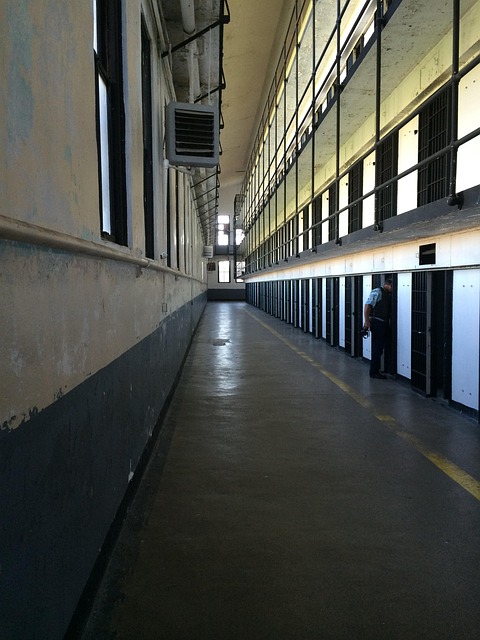The text explores contrasting DUI (Driving Under the Influence) legislation in rural and urban areas, primarily driven by population density and traffic volume disparities. Urban regions enforce stricter laws with harsher penalties due to high crime rates and traffic congestion, while rural communities adopt more lenient regulations based on lower incident rates and unique social contexts. This "Rural vs Urban DUI Legislation" dichotomy underscores the importance of understanding local laws for fair treatment and tailored crime prevention strategies. Access to support services, cultural norms, economic factors, and geographical challenges all play significant roles in shaping these differences, impacting sentencing and second-chance program design. Effective programs balance public safety and rehabilitation, offering community service, counseling, and innovative rural solutions like farm-based rehab centers to reduce recidivism rates regardless of location.
“In exploring the spectrum of DUI (Drunk Driving) laws, a striking disparity emerges between rural and urban areas. While strict legislation aims to deter drunk driving, first-time offenders often face starkly different consequences in these settings. This article delves into the complexities of rural versus urban DUI sentencing, examining how geographical factors influence leniency. We analyze challenges faced by rural communities implementing stringent laws, while also highlighting successful second-chance programs. Ultimately, we propose strategies to balance safety and rehabilitation for more effective outcomes.”
- Understanding Rural and Urban DUI Laws: Uncovering Disparities
- Impact on First-Time Offenders: A Different Story in Urban vs Rural Areas
- Sentencing Differences: Exploring the Factors that Influence Leniency
- Challenges Faced by Rural Communities in Implementing Strict Legislation
- Success Stories: Programs That Offer Second Chances and Their Effectiveness
- The Way Forward: Balancing Safety and Rehabilitation Strategies
Understanding Rural and Urban DUI Laws: Uncovering Disparities

In many countries, the landscape of Driving Under the Influence (DUI) laws varies significantly between rural and urban areas. This disparity often stems from population density differences, which directly impact law enforcement strategies and judicial interpretations. Urban DUI legislation typically faces unique challenges due to higher traffic volumes, making stringent laws a priority to maintain public safety. In contrast, rural communities may have more lenient regulations, reflecting lower incident rates and distinct social norms.
The divergence in Rural vs Urban DUI Legislation can lead to varying penalties, with urban areas often imposing stricter fines and license suspensions. Rural regions might offer more opportunities for diversion programs or community service as alternative sentences. These differences underscore the need for a nuanced understanding of local laws to ensure fairness and effective crime prevention tailored to each region’s specific needs.
Impact on First-Time Offenders: A Different Story in Urban vs Rural Areas

The impact of second-chance programs for first-time offenders varies significantly between urban and rural areas, influenced by local legislation and community perceptions surrounding DUI (drunk driving) offenses. In urban centers, where dense populations and vibrant nightlife exist, the challenges are multifaceted. Strict DUI laws are often in place, but enforcement can be more challenging due to the dynamic nature of city life. As a result, first-time offenders might face harsher penalties, with community service, fines, and license suspensions being common consequences. However, urban areas also tend to have better access to support services, such as counseling and rehabilitation programs, that can help address underlying issues contributing to impaired driving.
In contrast, rural areas present a different narrative. With lower population densities and often tighter-knit communities, rural DUI legislation tends to be less stringent. This can lead to more lenient punishments for first-time offenders, but it also risks underemphasizing the severity of drunk driving within these communities. Rural residents might have limited access to specialized support services, making it more crucial for second-chance programs to focus on education, prevention, and tailored interventions to break the cycle of impaired driving.
Sentencing Differences: Exploring the Factors that Influence Leniency

In the realm of criminal justice, first-time offenders often find themselves navigating a complex web of sentencing guidelines, with factors like jurisdiction and community type playing pivotal roles. One striking disparity emerges when comparing rural and urban DUI (Driving Under the Influence) legislation. Urban areas, characterized by dense populations and bustling streets, typically have stringent DUI laws, reflecting the heightened concern for public safety in highly populated regions. In contrast, rural communities, often with less densely populated landscapes, may exhibit more lenient sentencing for first-time offenders, focusing on rehabilitation and community support rather than strict punishment.
This disparity stems from several considerations, including local cultural norms, economic factors, and access to resources. Urban DUI legislation tends to be influenced by high-profile accidents and the need to deter reckless driving in crowded spaces. Conversely, rural areas may prioritize education and intervention programs due to lower incident rates and unique community dynamics that foster a sense of responsibility. Such variations underscore the importance of understanding local legislation when navigating the criminal justice system, especially for first-time offenders seeking second chances.
Challenges Faced by Rural Communities in Implementing Strict Legislation

Rural communities often face unique challenges when it comes to implementing strict legislation, such as those related to driving under the influence (DUI). In contrast to urban areas with more readily available resources and higher population densities, rural regions struggle with limited funding, smaller law enforcement agencies, and a broader geographical spread. These factors can hinder the effective enforcement of DUI laws, which are often stringent in both rural and urban settings.
The Rural vs Urban DUI Legislation disparity is further compounded by cultural and social differences. In rural areas, where close-knit communities prevail, stigma surrounding DUI may not be as pronounced as in urban centers. This can lead to lower reporting rates of drinking and driving and make it more difficult for law enforcement to identify and target at-risk individuals. Additionally, the remoteness of these regions can complicate the process of transportation and incarceration, further exacerbating the challenges faced by rural communities in administering strict DUI legislation.
Success Stories: Programs That Offer Second Chances and Their Effectiveness

In today’s digital era, many innovative programs are offering second chances to first-time offenders, especially those facing DUI charges in both rural and urban areas. These initiatives focus on rehabilitation and reintegration, aiming to break the cycle of recidivism. One successful example is the “Second Chance” program in urban centers, where participants engage in community service, educational workshops, and mentorship sessions, leading to improved outcomes and reduced repeat offenses.
In contrast, rural communities have implemented unique approaches like farm-based rehabilitation centers that combine therapy with agricultural work. These programs not only address the individual’s well-being but also foster a connection to the land, often proving effective in reskilling participants and providing them with sustainable alternatives post-incarceration. The effectiveness of these initiatives is evident in reduced recidivism rates, demonstrating the power of tailored, community-focused solutions for first-time offenders, regardless of their geographical setting.
The Way Forward: Balancing Safety and Rehabilitation Strategies

In addressing first-time offenders, a delicate balance must be struck between public safety and rehabilitation. This is particularly evident in the disparity between rural and urban DUI legislation. Urban areas often have more stringent laws due to higher population densities and the need for stricter deterrents. In contrast, rural regions might adopt different approaches, considering the lower crime rates and unique challenges of limited transportation options.
Rehabilitation strategies should be tailored to address the root causes of offenders’ behavior, offering support systems and education. However, these programs must complement existing legislation, ensuring that safety measures are not compromised while providing a path to redemption for those who make mistakes.
In conclusion, while rural and urban areas face distinct challenges regarding DUI laws and sentencing, a balanced approach is crucial. Understanding the disparities in legislation and their impact on first-time offenders is essential for implementing effective rehabilitation strategies. By examining successful second-chance programs, we can foster safer communities without losing sight of the human element. Moving forward, integrating rural community needs with urban best practices will ensure comprehensive DUI management, promoting both public safety and individual growth.






